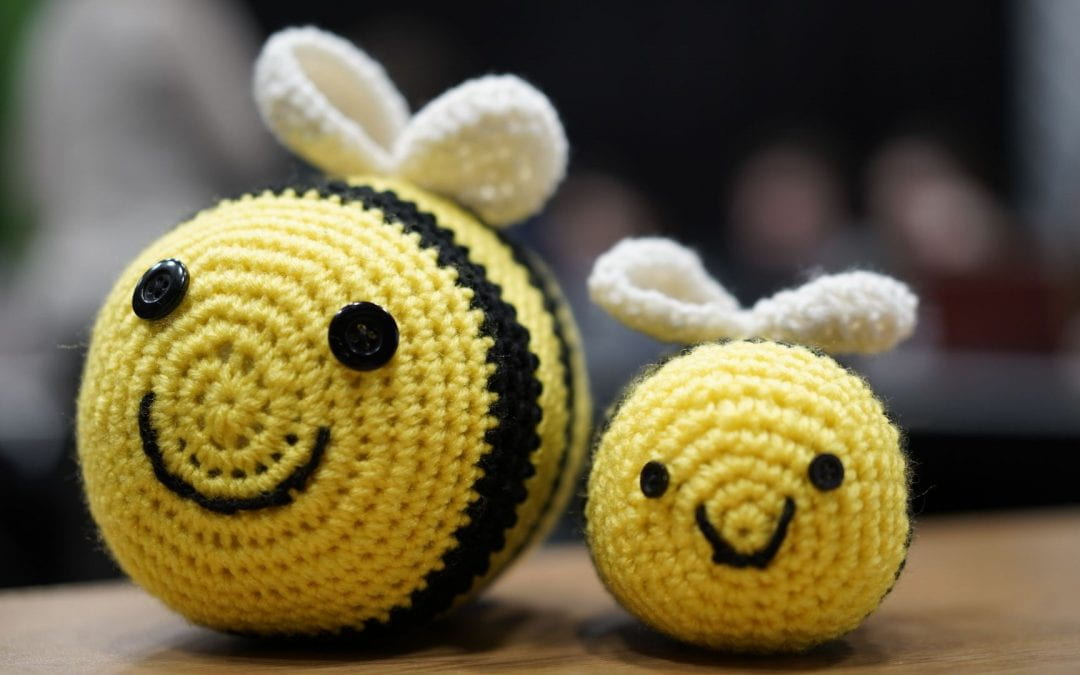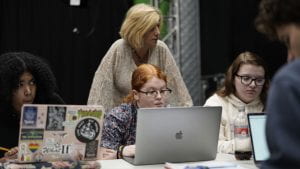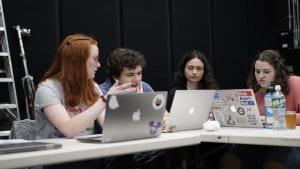- Maria Luskay looks over Olivia, Sue, and Sam at work.
- Kaylyn, Brian, and Allison look over their research notes.
- Katie, Korbin, Emily, and Emily discuss their contact letters.
Another vertebra to the backbone of documentary-making is the quality and quantity of contacts. Those are generally found in the initial stages of research, with more contacts being found as more people reply. We go for a mix of experience levels and presence in the respective communities we are looking to film. Hence, people like Sibyle Moulin, the Notre Dame beekeeper, are essential to the documentary. While we will never know what the interview will contain until it happens, all stories are worth being heard. We also took the time to start drafting emails to our initial contacts, which will be sent out by the time this post goes up!
Do you or someone you know keep bees? We want to hear your story! Pace University’s Pace Docs crew is in the process of producing a documentary about Urban Beekeeping, the latest in a series of award-winning environmentally and culturally relevant documentaries from our department. Contact us at paceudocs@gmail.com. And follow us on Instagram, Facebook, Twitter, and Tik Tok for more content!




